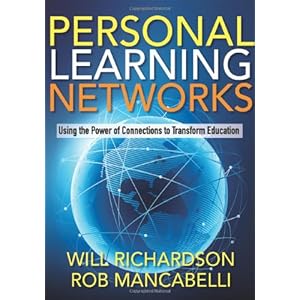
I read the first chapter of PLN and its all about understanding the power of PLNs. The first chapter goes into detail about "the Big Shifts" and how its not easy to transition into, how there are new literate standards to adhere by because of the new shifts. It also talks about how skills will be changing and the effects of networking, and how we need to look forward not backwards" because its a change we have to face. This chapter just assumes teachers will be embracing the new technology age and just adapt. I personally have a few questions about that, and i disagree with a few of the statements.
I understand the world is changing and its a new way of life to have your cell phone attached to your hip. Along with the new ipads and such coming out too. But do we really want our four to eight year olds being glued to the computer, or having phones or ipads at such a young age? Those early years are the most influential years of a childs life. Freidrich Froebel once said those years are about "free work" and play. His theories were designed to stimulate learning, through self-playing and activities accompanied by songs and music. At such an early age thats critical in the development of the young ones. Think about it this way. Yes bringing technology into the classroom is a great idea for students who can determine the difference between good information and bad information. The book says these issues are just an "easy way to not have to deal with the real world realities". That’s not true. You can use technology in the classroom to a point with young ones, but when it comes to fifth graders then go all the way and jump right into the personal learning networks. There’s no reason to have a five year old on a computer chatting up some professor about anything when they can’t even comprehend what’s being discussed.
The book states that using networks in school will have these 7 effects
"1. students are better prepared for life and work in the 21st century
2. classrooms are more engaging
3. students are responsible for their own learning
4. instruction is more individualized
5. adults become better at their jobs and build problem-solving capacity
6. students are safer
7. schools save time and money."
I do agree with number 1, 2 (to a point), 5 and that’s it. I do not agree with the others. How does exposing five year olds in kindergarten to the wide world net make them safer? That doesn’t make any sense. Then for number 3, what do we do about the students who need help or what about when the students fail, is it all on them now? Not the teacher? As for number 7 yes the school might save money with not having the need for the teachers, but what about all the computers and web cameras and attachments that costs money?
I do realize I am an early childhood and special ed major so clearly all my questions would be in regards to those levels. I think PLNs would be very powerful in the right grade levels but as for me i find no need for them in my future classroom. Although I would be using them in my personal life to better myself as a teacher but in the classroom I only find a need to use a smart board, or power points to interact with students. They dont need to be web surfing just yet.
I like how you tied a tradtional theorist into your blog. In all of our education classes those are the people we are being taught to follow, and the authors of this book seem to feel that they have a better way of doing something that has been being perfected for decades.
ReplyDelete